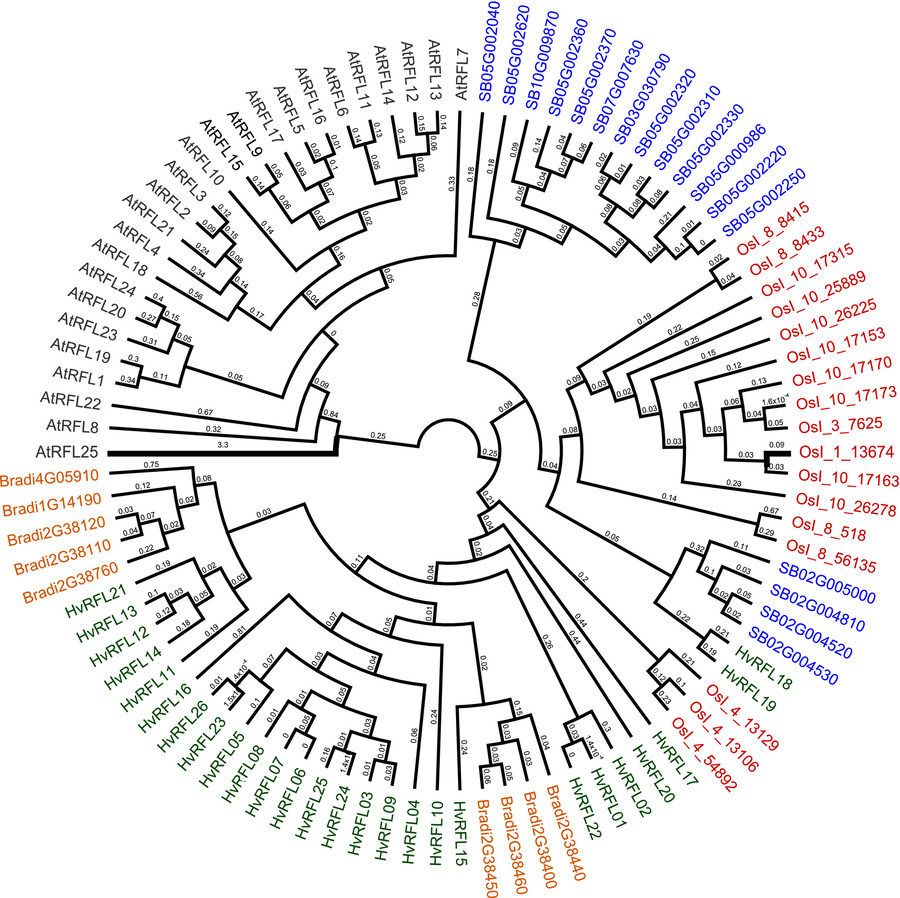Research published by PEB researchers in collaboration with The Leibniz Institute of Plant Genetics and Crop Plant Research (IPK) in Germany, has led to rapid improvements in our understanding of the genetic control of plant fertility in cereals.
This research focuses on Restorer-of-fertility-like (RFL) pentatricopeptide repeat genes, which are valuable for controlling pollen formation during the breeding and production of hybrid varieties in many crops, including cereals. The IPK team provide access to major new sequence datasets obtained by genome and exome sequencing and PEB researchers are providing their bioinformatics skills and expert knowledge on this gene family.
In a 2019 study, these researchers looked at RFL genes in the reference genome of barely (Hordeum vulgare) and their diversity across hundreds of exon capture datasets of barley landraces and wild relatives, supplied by the IPK. Extremely high intraspecific sequence variation among RFL family members was found, a novel discovery with important implications in the use of these genes in breeding programs. The study is now being expanded to include an additional twenty barley genomes sequenced within the “Barley Pan Genome” project.
The collaboration between PEB and the IPK has laid the foundation for a long-term partnership between researchers from the centres. The results of this collaboration are already being published in high-impact journals, and will be applied in the development of new fertility restoration loci for hybrid production in cereals.
Melonek J, Zhou R, Bayer PE, Edwards D, Stein N, Small I (2019) High intraspecific diversity of Restorer-of-fertility-like genes in barley. The Plant Journal 97 281-295
WtRb2nxjnJPKq7LiW

